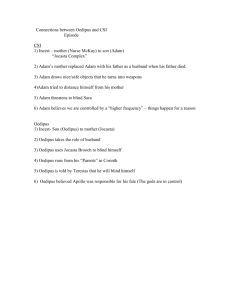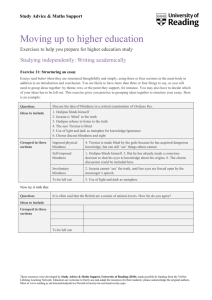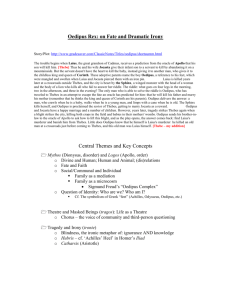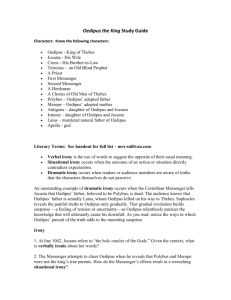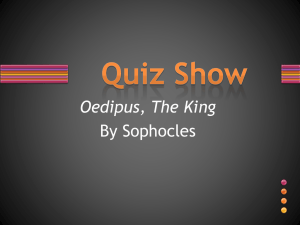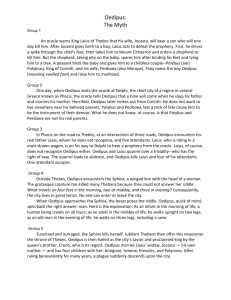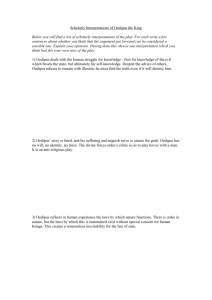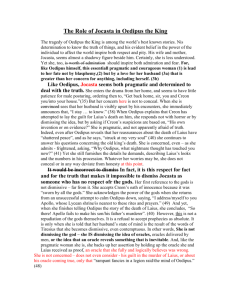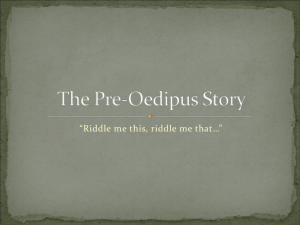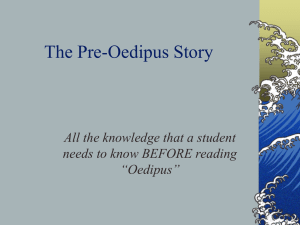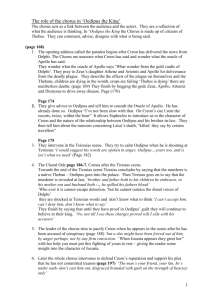Oedipus Rex – Part 2
advertisement
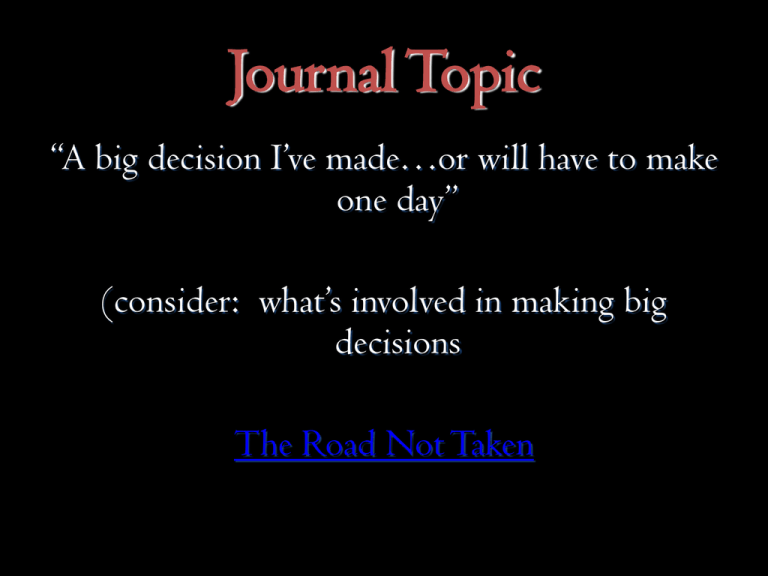
Journal Topic “A big decision I’ve made…or will have to make one day” (consider: what’s involved in making big decisions The Road Not Taken Essential Question: How does irony play a role in scene 3 of the play? Storyline A. Jocasta states that since old prophecies are false, new ones are too. B. Messenger from Corinth arrives – Corinth’s king, Polybus has died C. Corinth wants Oedipus to return home to reign D. Jocasta – this proves prophecies can’t come to pass E. Oedipus is wary – his mother is still alive Storyline (cont.) F. Messenger – Polybus and Merope are not your G. H. I. J. parents – I gave you (as baby) to them Laius’ shepherd gave baby (with bound feet) to the messenger Shepherd is sought for, Oedipus determined to learn truth, Jocasta wants Oedipus to forget search for truth Jocasta distraught – has realized the truth about Oedipus Oedipus eagerly pursues the truth about his birth – unaware of the implications of what he has heard Storyline (Key Lines) “Why should anyone in this world be afraid since Fate rules us and nothing can be foreseen? A man should live only for the present day.” L. “…you still do not know what you are doing” (l. 957) M. “Can you not see that all your fears are groundless?” (l. 962) K. “You are fatally wrong! May you never learn who you are!” (l. 1013) L. “How could I wish that I were someone else? How could I not be glad to know my birth?” (ll. 10281029) K. Irony and plot twists A. Messenger – good news which brings grief (ll. 891-892) B. Oedipus’ outburst of joy (ll. 915-923) C. Jocasta’s reaction to Polybus’ death (“this news is wonderful” – l. 937) D. Messenger’s surprise – “Polybus was not your father.” E. Found on Cithaeron (ll. 972-980 see p. 228) F. Jocasta tries to end Oedipus’ inquiry (ll. 10001018) Developing Themes A. Theme – central idea or insight of a work of literature. The idea the writer wants to create about the subject. Ex. The subject in the movie, The Wizard of Oz is about going home. The theme of the story is that we sometimes fail to appreciate all the positives/benefits of our homes, thinking that something better awaits us elsewhere (the cliché that sums this idea up best is “the grass is always greener on the other side.” Developing Themes (cont.) B. Emerging thematic issues in Oedipus Rex: 1. The willingness to ignore truth 2. The limits of free-will 3. The cause and nature of human suffering 4. The importance of self-knowledge Developing Themes (cont.) C. Motifs - patterns, ideas, contrasts, literary devices used to present themes 1. Blindness vs. Sight 2. Dramatic Irony Developing Themes (cont.) D. Symbolism - something used to represent something else 1. the crossroad (decision/fate) 2. Oedipus’ swollen feet (fate, limitations, flaw) Developing Themes (cont.) E. Tragic Flaw (Hamartia) 1. Hubris – excessive pride 2. Oedipus becomes hopeful/eager with the news of the messenger from Corinth but a. Ignores Jocasta’s growing dread b. Fails to make connections to Jocasta’s story

